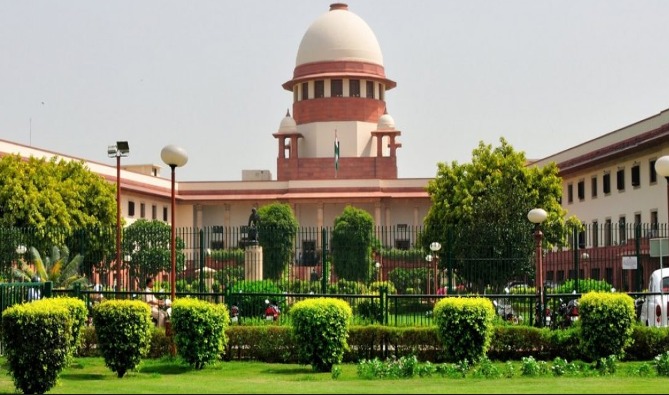
A petition has been filed in the Supreme Court by a Muslim woman, Bushara Ali challenging the discriminatory nature of Shariat Law in the distribution of property between male and female heirs.
A notice in the matter was recently issued by a Division Bench of Justice Krishna Murari and Justice Sanjay Karol.
When compared to her male counterparts, Ali received only half of the shares in her ancestral property. She received 7/152 shares in her ancestral property, whereas her brothers received 14/152 shares.
Appalled by the discrimination she has faced as a result of archaic Islamic law, she has approached the top court in the hopes of redressal. The petitioner claimed that “despite (the) guarantee of the Constitution, Muslim women are subjected to discrimination,” arguing that a female is not entitled to an equal share of property on par with a man under Shariat.
Ali has challenged Section 2 of the Muslim Personal Law (Shariat) Application Act, 1937, on the grounds that it violates Article (discrimination) of the Indian Constitution. The contentious section of Muslim personal law reads as follows:
“Notwithstanding any custom or usage to the contrary, in all questions (save questions relating to agricultural land) regarding intestate succession, special property of females, including personal property inherited or obtained under contract or gift or any other provision of Personal Law, marriage, dissolution of marriage, including talaq, ila, zihar, lian, khula and mubaraat, maintenance, dower, guardianship, gifts, trusts and trust properties, and wakfs (other than charities and charitable institutions and charitable and religious endowments) the rule of decision in cases where the parties are Muslims shall be the Muslim Personal Law (Shariat).”
Appearing for the petitioner, advocate Matthew Joy contended that the Muslim Personal Law (Shariat) Application Act, 1937 is a pre-constitutional statute and thus falls under Article 13 (1) of the Indian Constitution.
It states that “all laws in force in the territory of India immediately before the commencement of this Constitution, to the extent that they are inconsistent with the provisions of this Part, shall be void.”




